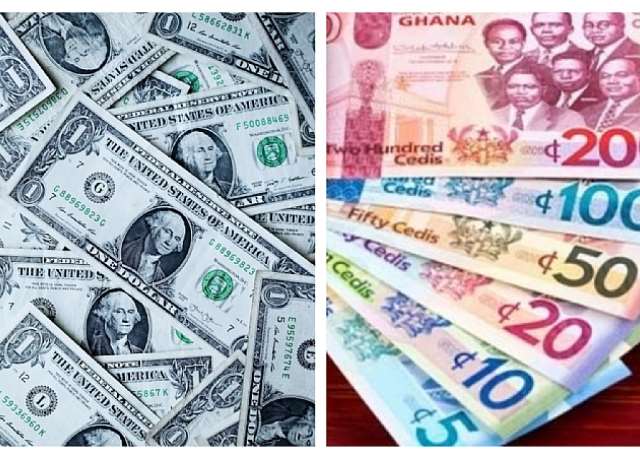The Ghana cedi continued to lose ground against major international currencies on Tuesday, September 9, 2025, deepening concerns among businesses and the public about the local currency’s stability.
According to the Bank of Ghana’s official interbank rates, the cedi was bought at GH¢12.0440 and sold at GH¢12.0560 to the US dollar. The British pound sterling was quoted at GH¢16.3148 (buying) and GH¢16.3323 (selling), while the euro traded at GH¢14.1535 (buying) and GH¢14.1663 (selling).
These figures underscore the depreciation of the cedi, which only a few months ago traded around GH¢10 to the dollar, largely supported by central bank interventions.
Commenting on the cedi’s trajectory, Joe Jackson, financial analyst and Chief Executive Officer of Dalex Finance, cautioned against treating exchange rate stability as the ultimate sign of economic strength.
“The exchange rate is important, but it is definitely not the measure of how well your economy is performing,” he said in an interview on Citi TV.
He cited China, South Korea, and Japan as examples of economies that deliberately kept their currencies undervalued for decades to make their exports more competitive and attract foreign investments.
“A strong currency has its problems,” he explained. “Talk to the Germans, and they will tell you some of the difficulties they are facing now are that the euro is too strong.”
Mr Jackson attributed the recent slide in the cedi partly to the Bank of Ghana’s decision to step back from direct interventions in the forex market.
“For several months, the central bank intervened, keeping the exchange rate around 10 or 11. But as soon as it announced it would no longer intervene, what happened? The rate shot up from 10 and 11 to 12 plus,” he observed.
While acknowledging that the earlier rate gave a “feel-good factor” and boosted confidence, Mr Jackson argued that it was unsustainable because the cedi was overvalued.
“It is my opinion that the rate of 12 plus is a far more defensible position for the central bank than 10.5,” he stressed. “The 10.5, even though it made everyone bullish, would have brought us challenges over time.”
For businesses, a volatile exchange rate complicates planning, pricing, and imports, while investors typically prefer a stable environment for returns. Mr Jackson conceded that exchange rate stability is desirable because it allows businesses to forecast with confidence.
“As a business, if the exchange rate is stable, I am happy; I can plan, I can forecast, and I can do all the right things. As an investor, exchange rate stability makes sense; as a financial institution, exchange rate stability makes sense,” he explained.
However, he reiterated that stability alone cannot be equated with sustainable economic growth, which depends on broader fundamentals such as exports, productivity, industrialisation, and fiscal discipline.
The cedi’s performance comes at a time when Ghana is navigating tough economic conditions, including rising import costs, high public debt, and ongoing fiscal adjustments under the IMF-supported Post-COVID-19 Programme for Economic Growth (PC-PEG).
With the cedi now firmly above GH¢12 to the dollar, analysts argue that government, businesses, and households must adjust expectations and focus on long-term reforms rather than short-term exchange rate fixes.
Click the link Puretvonline.com | WhatsApp Channel to join the WhatsApp channel
GOT A STORY?
Contact/WhatsApp: +233243201960 or email: manuelnkansah33@gmail.com

